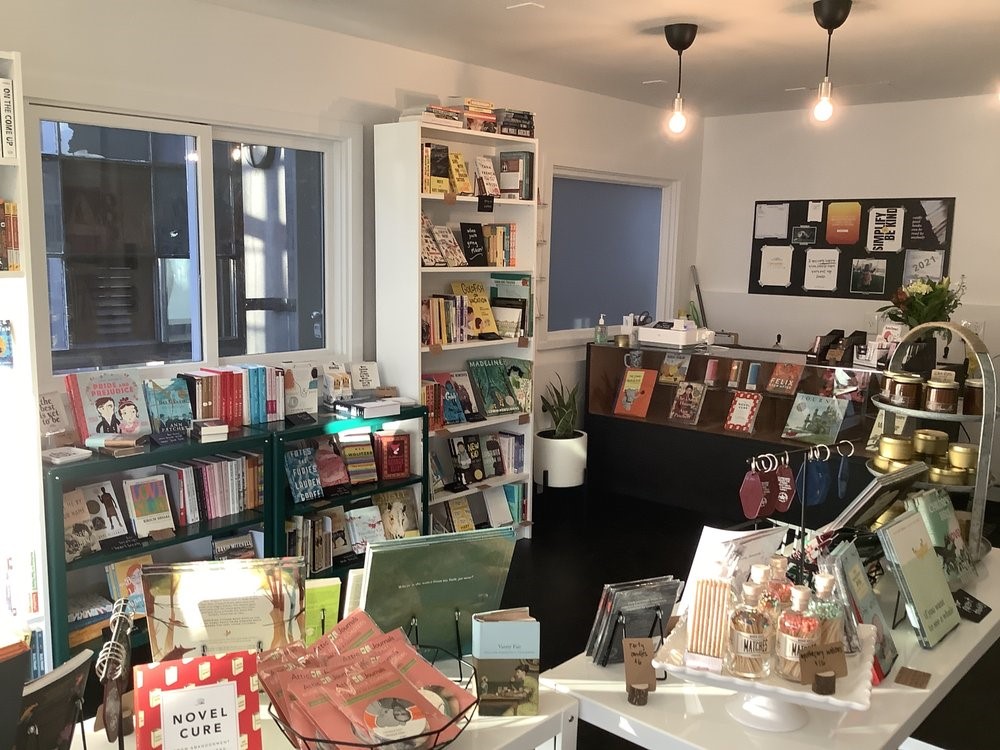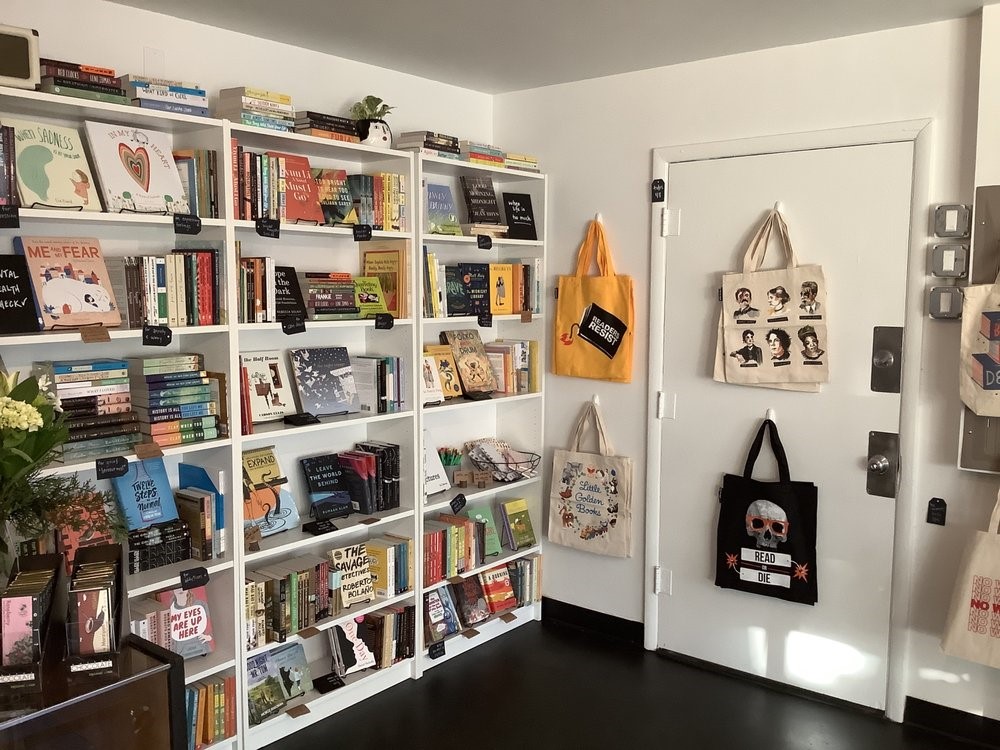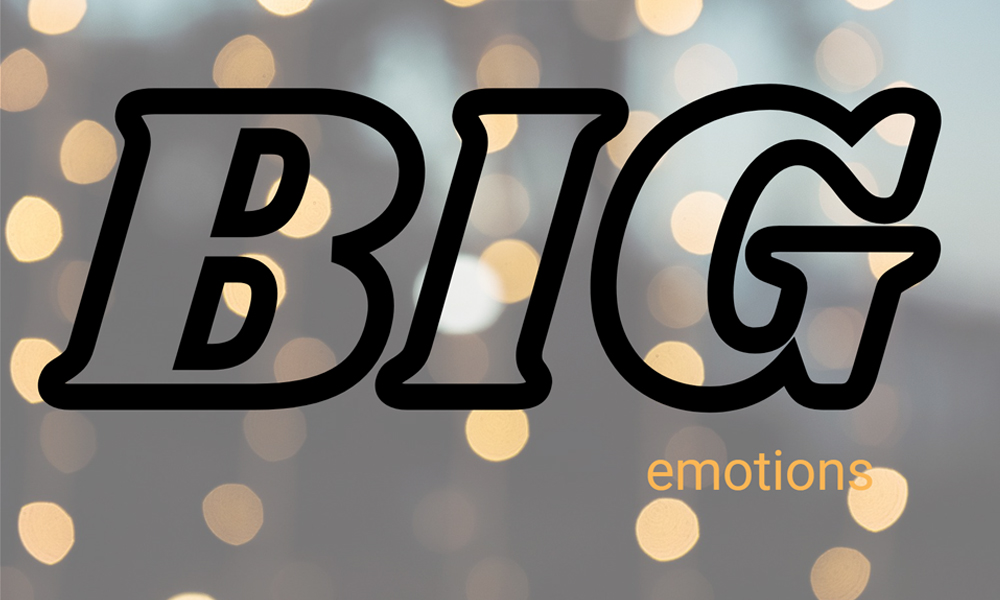Hello again, feelings. I’ve stuffed you so deeply in my pockets, squirrelled you away so tightly in my dresser drawers that the pandemic’s one-year anniversary meekly resurfaces their plight and pleasure. From the back of my closet I extract those skinny jeans that haven’t seen the light of day since early 2020. I lay back on my bed, whisper a soft prayer as I close my eyes, and give ‘em a good yank hoping the neighbors don’t bear witness. And all the feelings from the past 12 months come squeezing out.
At this point feelings are the unsung hero of the pandemic’s resolution — they may be marauding, suppressive, and wholly refractory, but they also offer a singular means of coping. Among support networks of family, friends, and pets, feelings are what keep me going and what keep me connected.
Two new projects have contended with the pandemic in the most logical way possible: feelings. Oh Hello Again, a Seattle-based bookstore, and the Visionary Futures Collective, a humanities advocacy organization, both draw feelings and literature into focus. They share an ethos to make one’s life feelings-aware, to foreground our emotions in the choices we make on the day-to-day, rather than banish their existence to the bottom of the laundry hamper. Feelings are no longer the occluded by-product of the day’s decisions. They become an innervation to the body of reading.
Finally. Let your feelings be free.
“Oh Hello Again” opened in December 2020 under the guiding premise of bibliotherapy. Instead of standard genre or alphabetical alignments, “Oh Hello Again’s” books are organized by emotions. The bookstore’s founder Kari Ferguson explains that she wanted folks to walk in and ask themselves about their needs in that moment. “I came up with some overarching sections: mental health, relationships, when you are going somewhere, when you want to improve yourself, or self-care and introspection, for everyday problems,” and importantly, she tells us, “for when life is too much.”

Similarly shaped by the COVID-19 pandemic and “life is too much” fatigue, the Visionary Futures Collective (VFC) — energized by a rallying cry from humanists from across the nation — employs a feelings-focused approach to understanding Higher Ed during these times. Founded in 2020, the VFC is at once a collective that identifies the study of human history and culture and a catalyst that insists on new conditions in which this ever-more valuable work can thrive. They care about the ways in which humans are actually the key factor in this massive, often intangible, formalized umbrella of humanistic inquiry, valued at institutions of learning as departments dedicated to language, writing, and reading.
Their members are experts in literature, culture, and digital humanities who insist that the very values Higher Ed purports to represent meet consistent and tenable standards. Here, the VFC offers a new take, the same as Ferguson’s bookstore: what if we just ask the human, and their feelings, instead. If book buyers and students spend their wee hours reading then they must be able to reconcile the fallout of feelings accordingly.
Feelings Manifest
“I think subconsciously we are always reading and mentally ingesting books based on our needs,” says Ferguson. She previously owned a children’s bookstore, and upon learning it was closing, (under new ownership) Ferguson felt the blow. Facing her feelings she successfully mobilized new energy into “Oh Hello Again”: her very own brick-and-mortar DIY book project. The bookstore spoke to her needs. “It’s kind of like food in a way — we eat what we want, but our body uses what’s in the food to address needs or shortages in our own physical systems.” The bookstore is a body you walk into; you listen to its heartbeat and let the books align with your blood pressure and breath. It’s a place to let feelings manifest themselves without judgment or fear or repudiation. It’s a kind of literary mindfulness. Ferguson explains:
We can read something at a certain time in our lives, and what we need from that book or that author finds its way to our minds or psychology. At another time, we might reread the same book and get different things or messages out of it.
A bookstore that prizes community and compassion over Amazon predictions is a unique way to define our shared human condition.

Likewise, the VFC manifesto demands the constituency of this shared human condition: “We are constantly learning new ways to enable change, but this group focuses creating compassionate communities in Higher Ed through shared vulnerability,” their mission states. “As trained humanists we are meant to observe and trace the contours of things that define our shared human experience,” VFC co-founder Dr. Brian DeGrazia explains, “in a system that actively prizes individualism and competition over community and care.”
A sense of community while one is a student of humanities — waist deep in books and writing prompts — remains ever the elusive target. Students may apply for humanities graduate programs because they are passionate about books, let’s say, where they study the intimacies of authors and their work with little to no formal assessment or caretaking of their own psychic health. That a fundamental emotional values misalignment exists between readers and the books they research is not uncommon, as Higher Ed values and maneuvers within a capitalist workforce. The VFC seeks to draw attention to the fact that this work — teaching, reading, community building — is realized at the expense of those who perform it and makes for a humanities cabal left to question the value of their experiences in the eyes of the institution. The VFC opens up the conversation to folks in Higher Ed who may have something to say about how they feel in the face of their learning and teaching during the pandemic, a time when emotional and psychological awareness has shot-putted to the forefront of daily university life.
Feelings change. That’s part of their charm. Both the VFC and “Oh Hello Again” adopt fluid approaches of knowledge acquisition under the premise that feelings belie stagnancy. The bookstore’s sections mirror the environment in which they live. One reflects the current month, in a “how to” format, based on customer recommendations, cultural news, and recently arrived titles. A newly added “witchcraft and black magic” and forthcoming “when you want to read books about books” and “when you want to read books about art” sections could very well suit the casual reader or a student seeking inspiration for their next research project.
To assess pandemic effects on campuses, the VFC is developing several missives: data visualizations that track labor and safety protocols; a caregivers survey that reports institutional support infrastructures; and a bi-weekly feelings survey where Higher Ed workers identify their emotional reactions to the COVID status quo. These initiatives are fluid. They respond to the changing attitudes and feelings of those who command the front lines in these spaces. Ferguson likewise launched her Capitol Hill bookstore in response to the novel modus of pandemic reading. “I had read about bibliotherapy and the books The Novel Cure and The Story Cure,” she tells us, “and I started a store based on their books and the idea of bibliotherapy.” Two birds, one stone: feelings and readings.
Reading and Mental Health
Another VFC cross-genre initiative is the Academic Psychic Friends Network: a feelings-centered newsletter. The humanities are replete with feelings—scholars steep themselves in the stories of human substance. The human behind the research, however, is often inexorably disappeared from the project, inasmuch as the engineered precarity of academia precludes any identity other than the one a scholar suffuses with their intellect. The feelings-scholar is frequently cast aside in the interest of the intellectual-scholar who can more visibly be productive and, importantly, rewarded. “We humanists are acculturated to overidentify with our work and yet are required to maintain (the guise of) an unnatural detachment from it,” DeGrazia clarifies, to say nothing of the labor required to do so.
Where did those feelings go? Ferguson has the answer. In “Oh Hello Again” one of her favorites is the “mental health check” section, including the categories: for depression, for anxiety, for OCD, for Autism, for abuse and trauma, for suicidal thoughts, for eating disorders, and for grief.
Much of Ferguson’s life involves mental health advocacy — including around children’s books — a passion that buttresses the books on her shelves. “I think it is so important to educate people on these conditions so they can see that they are not alone or “strange” for having mental health issues,” she explains. And when the pathos of the store is made overt and accessible — where a shopper is encouraged to engage with an expert right at hand — it may powerfully change the reader’s selections. In fact, the whole store is an experiment, a kind of literary performance. Each day someone walks into the store shifts have been made — a not uncommon event in any bookstore — but the energetical categories intentionally invite a new emotional response. No one visit to the store is the same.
The VFC’s artistic feelings project, Academic Tarot — the traditional 22 Major Arcana reinterpreted for academics — encourages us to see ourselves from a perspective that otherwise may elude us. A looking glass of our own personal making, tarot marks an elision of the middle man to help the reader gain interior insight. Academic Tarot and “Oh Hello Again” are both new ways of thinking about emotional and embodied experience during a time of global crisis. Our communal sense of feelings is fraught with this exhaustion. If we let our feelings pilot our reading selections, we may just become close readers of our own book. In fact, VFC co-founder Dr. Hannah Alpert-Abrams says of Academic Tarot, “It allows me to use my skills as a student of literature. Reading a tarot card is an act of close reading that requires imagination, care, and critique, but for purposes that are entirely my own.”
The intersection of critical thinking and literary text converge on the byline of self-query. Ever the hallmark of the literary study, close reading trains the critical mind to seek meaning. Such an approach is acquired in stages: Students first learn to read a text as is, applying rhetorical devices to discover underlying gems buried beneath textual sediment. Then, the examination of the equivocal subtext unearths these precious stones, bestowing new entrances to the material, allowing for their final extraction: the eventual launch off the page for cultural, historical, and social interpretations. Theoretical extrapolations of the text are then woven into a new narrative, the complete jewel. Academic Tarot thrives in this unique narrative-weaving that builds “towards self-understanding and action, rather than critique” Alpert-Abrams explains, using those very same skills employed in the study and reading of literature.
When readers enter “Oh Hello Again” they are perhaps unwittingly weaving their own narrative for the day as well, as “the whole store is a really an experiment in how to think about the potential of fiction books,” Ferguson states. As the lockdown is lifting and visits to bookstores return from the fray, we can perhaps read with a different kind of clarity. The VFC and “Oh Hello Again” each offers a potential, one that beckons a reading: of books and of ourselves.


